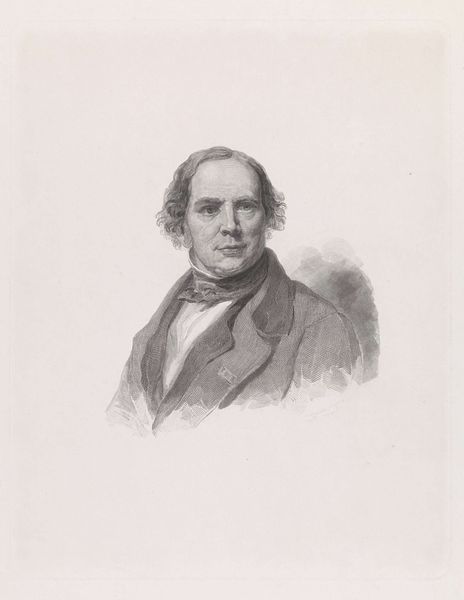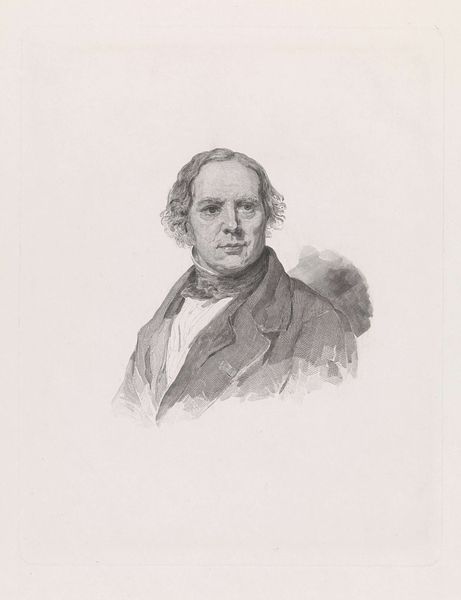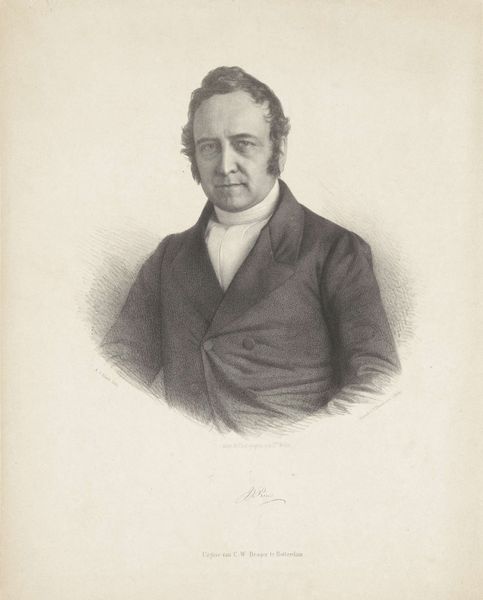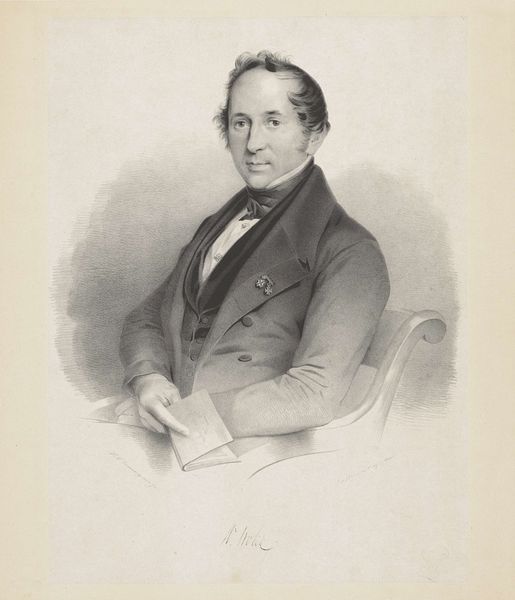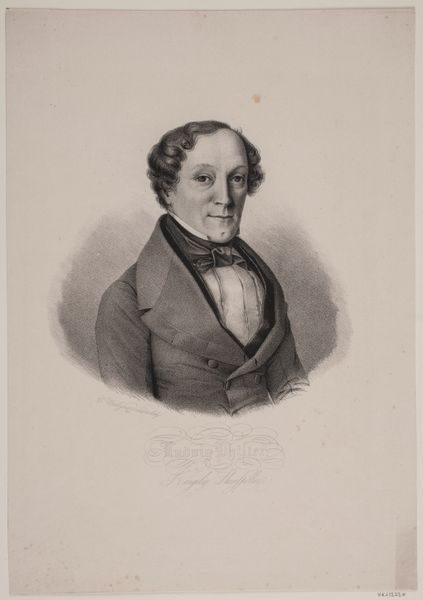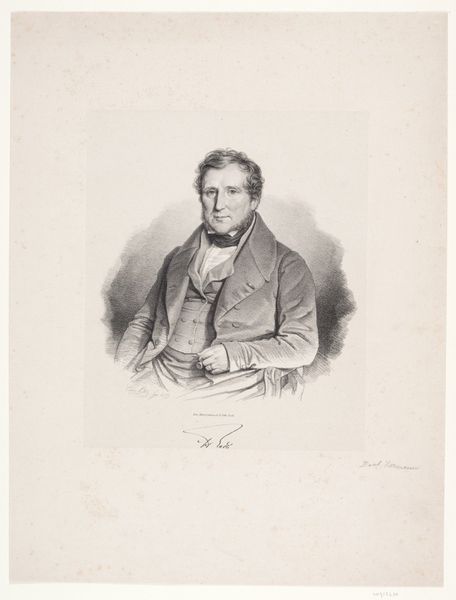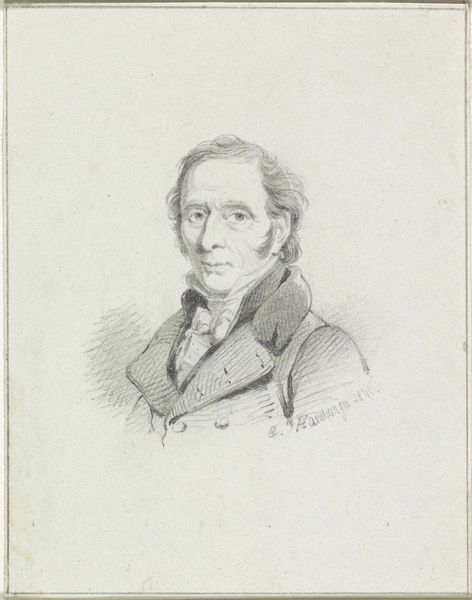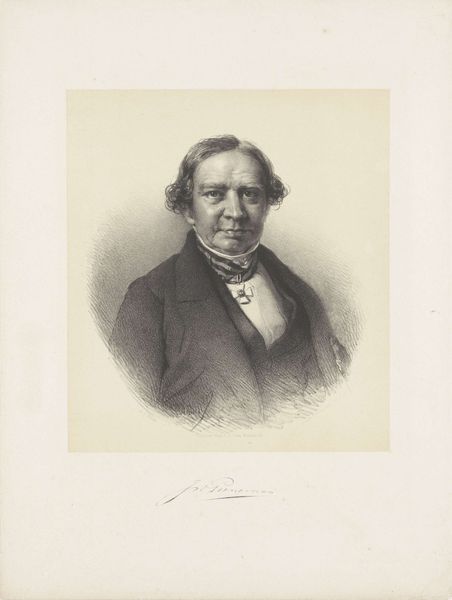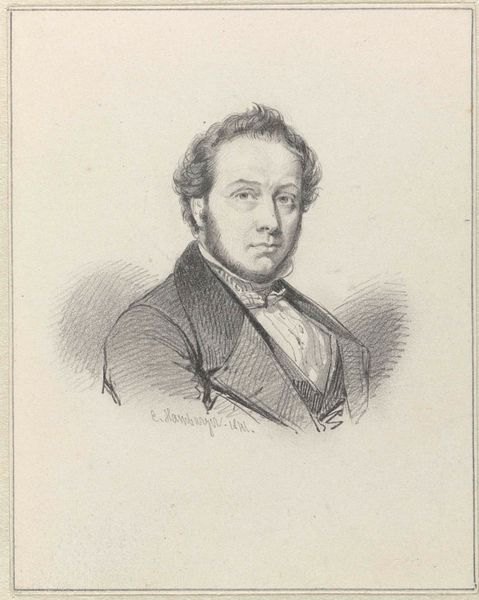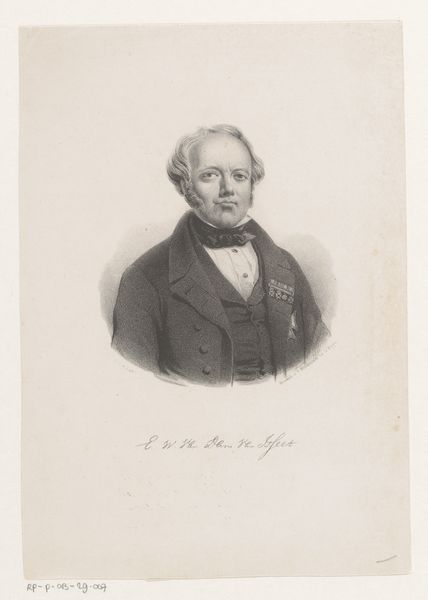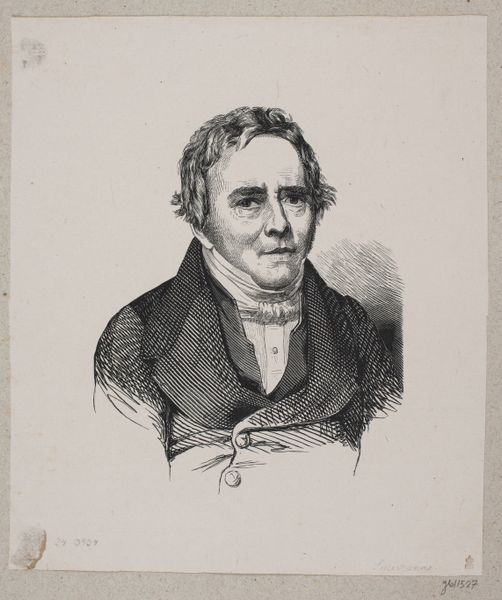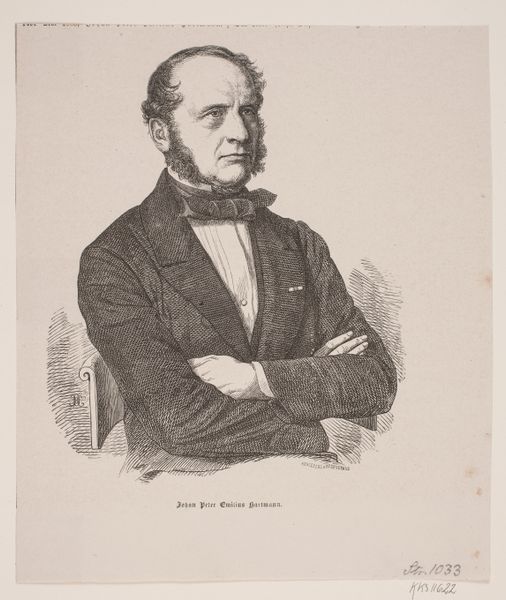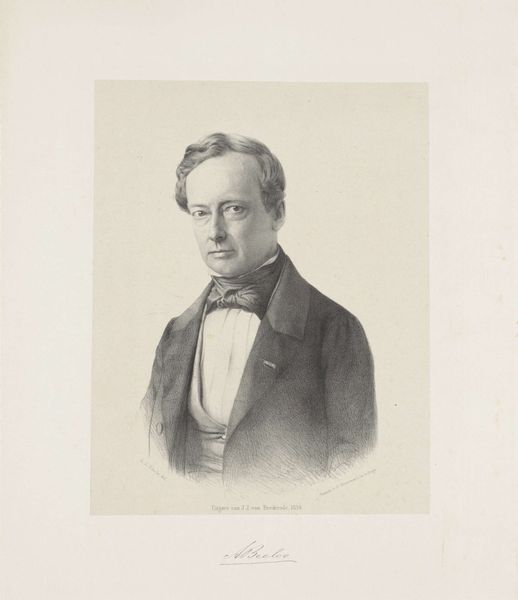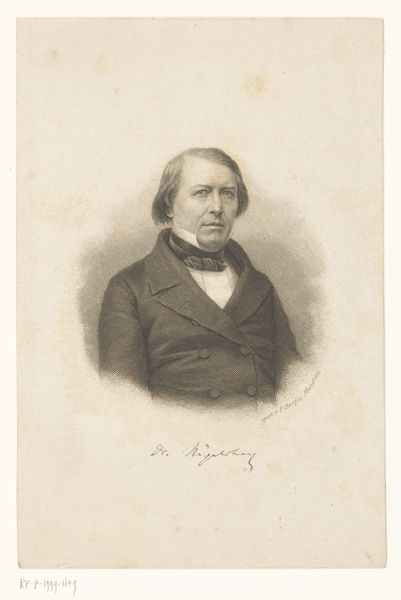
drawing, graphite
#
portrait
#
drawing
#
charcoal drawing
#
pencil drawing
#
graphite
#
portrait drawing
#
academic-art
Dimensions: height 340 mm, width 274 mm
Copyright: Rijks Museum: Open Domain
This is a portrait of Jan Willem Pieneman by Johann Wilhelm Kaiser, created in the Netherlands using lithography. In the nineteenth century, lithography played a crucial role in the distribution of images. As a relatively inexpensive and quick method of printmaking, lithography democratized portraiture, making it accessible to a wider public. While oil paintings remained the domain of the wealthy elite, lithographs allowed middle-class individuals to participate in the culture of portraiture, affirming their social status. The proliferation of lithographic portraits also reflects the growing importance of public figures and the cult of celebrity. Pieneman was a well-known painter specializing in Dutch history. This image speaks to the way institutional recognition elevates artists to celebrity status. To truly understand this work, we must look into the printmaking industry of the time, the institutions of art, and the status of artists in nineteenth-century Dutch society.
Comments
No comments
Be the first to comment and join the conversation on the ultimate creative platform.
